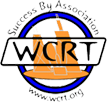
Posts Tagged ‘lender’
New Mortgage Rules Likely to Delay Future Residential Real Estate Closings
The Consumer Financial Protection Bureau (“CFPB”), a new federal agency created in 2010, is imposing new financial disclosure rules for residential mortgage loans applied for on and after August 1, 2015. The new rules will eliminate the HUD-1 settlement statement which has been part of residential closings for many years and replace it with new forms, one of which, the Closing Disclosure, must be sent to the borrower/buyer a fixed number of days in advance of closing. Because large fines of as much as $1,000,000 per day can be imposed on lenders for violating the new rules, it is expected that lenders will err on the side of caution in following the new rules.
Under the new rules the Closing Disclosure, which contains all of the financial information about the closing must be received by the buyer/borrower at least three days before closing. Since it is expected that most lenders will mail the disclosure and because of the time periods for receipt of mailings imposed by the new rules, the Closing Disclosure will have to be mailed more than a week before a closing can occur. Adding to that period, the additional time to be imposed by national lenders for preparation and processing of the form, many lenders are likely to require final closing figures as much as 12 to 14 days in advance of closing.
Thus, for a real estate deal which today could be closed a day or two after final “clear to close” loan approval, the new rules will likely push off that same closing for two weeks after final loan approval.
Feel free to contact an Illinois attorney experienced in handling all aspects of real estate closings for both buyers and sellers at Logan Law, LLC if you have questions about the sale of your Chicago area real estate or any other area of the laws governing the purchase or sale of real estate.
2014 Illinois Appellate Court Decision Improves Rights of Illinois Condominium Association to Collect Past Due Assessments of a Foreclosed Condominium Unit
The 2014 decision of the Illinois Appellate Court in 1010 Lake Shore Drive v Deutsche Bank National Trust Company pointed a way to a significant exception to the ordinary rule that an Illinois Condominium Association’s lien for pre-foreclosure assessments is wiped out by a condominium mortgage foreclosure. Until that decision, the only way for a an Illinois Condominium Association to collect any pre-foreclosure assessment arrearage was for it to have initiated an action against the foreclosed unit owner, in which it could collect up to six months’ back assessments plus attorney fees and costs incurred in collection not from the foreclosing lender, but from the first purchaser of the unit other than the foreclosing lender.
The new decision appears to have created a potentially significant opportunity for Illinois condominium associations with units being foreclosed. The lender in that case completed its foreclosure but did not begin to pay assessments which accrued after the completion of the foreclosure. The association eventually sued the lender and sued not just for the two + years assessments which had accrued after the foreclosure was complete but also for all pre-foreclosure assessments due with regard to the unit. The pre-foreclosure assessments totaled approximately 2/3 of what the association claimed.
The Illinois Appellate Court held that since the lender had failed to make any payments after the foreclosure was completed, the pre-foreclosure assessments were not extinguished by the foreclosure and thus the suing association was entitled to a judgment for both the pre- and post-foreclosure assessments regarding the foreclosed unit.
It should be noted that the decision did not make it clear how much a foreclosing lender must be delinquent in post foreclosure assessments for the rule to apply. In the Deutsche Bank case, the post foreclosure arrearage was for more than two years. The question arises as to whether a one month arrearage is sufficient, or six months or a year.
One thing to be learned from the decision is that it is important for an Illinois condominium association, large or small, to make sure that the lender does not have the opportunity to later argue that it didn’t know where to pay assessments or how much was owed, in a belated attempt to create a defense. Thus, it is important the association send regular billings to the lender beginning immediately upon the completion of the foreclosure. It may also be desirable to begin collection proceedings against the foreclosing lender sooner rather than later.
Associations with units delinquent in assessments which are being foreclosed are advised to consult legal counsel in order to make sure they recover the maximum amount of delinquent assessments available in this change area of the law. Feel free to contact a Logan Law, LLC condominium attorney, if you have any questions regarding collection of delinquent condominium assessments or if you need assistance or advice regarding other areas of condominium law.








